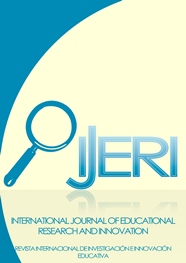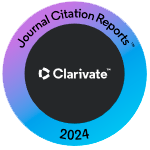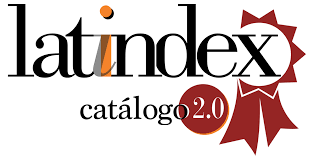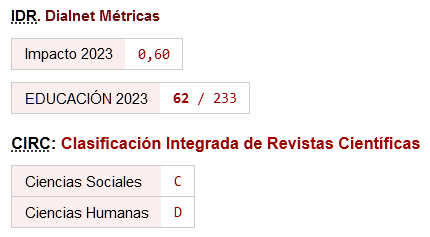Methodological proposal for software development in degree projects in the specialty of Computer Systems Engineering
DOI:
https://doi.org/10.46661/ijeri.4168Keywords:
Software development, agile methodologies, XP, Scrum, XprumAbstract
The objective of this paper is to propose a software development methodology for the degree works in the specialty of Computer Systems Engineering, through analytical and investigative study. Interview techniques were applied to a group of software developers, and the survey technique was applied, which was applied to students and teachers of the Faculty of Computer Science. Which allowed to collect certain characteristics of the existing methodologies, in such a way that they are adaptable and easy to execute for the scenario that is handled in the career and the knowledge that the students have when using a methodology of development in their projects. As a result of the work, a hybrid methodology called XPRUM is presented, which consists of four phases, which integrates the XP and Scrum methodology, which allows to conduct the software development process in the titration works. Promoting the use of the tool presented by the Kanban Methodology, which allows the control of processes and their activities.
Downloads
References
Abrahamsson, P., Salo, O., Ronkainen, J., & Warsta, J. (2017). Agile software development methods: Review and analysis. VTT publication 478, Espoo, Finland, 107.
Amavizca, L., García, A., Ruíz, Jiménez, E., Duarte, G., & Vázquez, J. (2014). Aplicación de la metodología semi-ágil ICONIX para el desarrollo de software: implementación y publicación de un sitio WEB para una empresa SPIN -OFF en el Sur de Sonora, México, 12, 10. Retrieved from: http://www.laccei.org/LACCEI2014- Guayaquil/RefereedPapers/RP246.pdf
Beck, Kent; Beedle, Mike; Bennekum, Arie van; Cockburn, Alistair; Cunningham, Ward; Fowler, Martin; Grenning, James; Highsmith, Jim; Hunt, Andrew; Jeffries, Ron; Kern, Jon; Marick, Brian; Martin, Robert C.; Mellor, Steve; Schwaber, Ken; Sutherland, Jeff;, D. (2011). Manifiesto por el Desarrollo Ágil de Software. Agilemanifesto.Org/Iso/Es. Retrieved from agilemanifesto.org/iso/es
Boronat, T., Montañés Muñoz, N., Garcia-Sanoguera, D., Fenollar, O., & Fombuena, V. (2017, July). Utilización de técnicas Kanban para la gestión de tesis doctorales. In In-Red 2017. III Congreso Nacional de innovación educativa y de docencia en red. Editorial Universitad Politécnica de Valéncia. 110–116.
Cendejas, J. L. (2014). Implementación del modelo integral colaborativo (MDSIC) como fuente de innovación para el desarrollo ágil de software en las empresas de la zona centro-occidente en México. Nova Scientia, 7(13), 268. Retrieved from: http://www.eumed.net/tesis-doctorales/2014/jlcv/#indice
Edeki, C. (2013). Agile unified process. International Journal of Computer Science, 1(3), 13–17.
Letelier, P., & Penadés, M. C. (2012). Métodologías ágiles para el desarrollo de software: eXtreme Programming (XP).
Mandriaga, C., Rivero, Y., & Leyva, A. (2016). Propuesta metodológica para desarrollo de software educativo en la Universidad de Holguín / Methodological proposal for educational software development in the University of Holguin. Ciencias Holguín, Revista Trimestral, 22(4), 5. Retrieved from http://www.redalyc.org/pdf/1815/181548029003.pdf
Martínez, A., & Martínez, R. (2014). Guía a rational unified process. Escuela Politécnica Superior de Albacete–Universidad de Castilla la Mancha.
Montilva, A. (2006). Desarrollo de Software Basado en Líneas de Productos de Software.
IEEE Computer Society, 1–34.
Navarro Cadavid, A., Fernández Martínez, J. D., & Morales Vélez, J. (2013). Revisión de metodologías ágiles para el desarrollo de software. Prospectiva, 11(2), 30–39. https://doi.org/10.15665/rp.v11i2.36
Patel, A., Seyfi, A., Taghavi, M., Wills, C., Na, L., Latih, R., & Misra, S. (2012). A comparative study of agile, component-based, aspect-oriented and mashup software development methods. Tehnicki Vjesnik / Technical Gazette, 19(1), 175–189. Retrieved from: http://hrcak.srce.hr/index.php?show=clanak&id_clanak_jezik=117665
Pérez, O. A. (2011). Cuatro enfoques metodológicos para el desarrollo de Software RUP–MSF–XP-SCRUM. INVENTUM, 6(10), 64-78.
Sánchez López, M., Vargas López, M., Reyes Luna, B. A., & Vidal Vásquez, O. L. (2011). Sistema de Información para el Control de Inventarios del Almacén del ITS. Reporte de Proyecto. Conciencia Tecnológica, (41), 41–46.
Sommerville, I. (2005). Ingeniería del software. Pearson Educación.
Tinoco Gómez, O., Rosales López, P. P., & Salas Bacalla, J. (2010). Criterios de selección de metodologías de desarrollo de software. Industrial Data, 13(2), 70–74.
Velázquez, M. B., Barroso, L. C., Castro, E. L., María, A., & Gonzalez, S. (2012). Aplicando el método de Boehm y Turner Applying the Boehm and Turner method. Serie Científica de la Universidad de las Ciencias Informáticas, 5(6), 1–12.
Yanina, M. (2018). Conoce las 3 metodologías ágiles más usadas | OpenWebinars.net. Retrieved from: https://openwebinars.net/blog/conoce-las-3-metodologias-agiles-mas- usadas
Downloads
Published
How to Cite
Issue
Section
License
Copyright (c) 2019 IJERI: International Journal of Educational Research and Innovation

This work is licensed under a Creative Commons Attribution-NonCommercial-NoDerivatives 4.0 International License.












